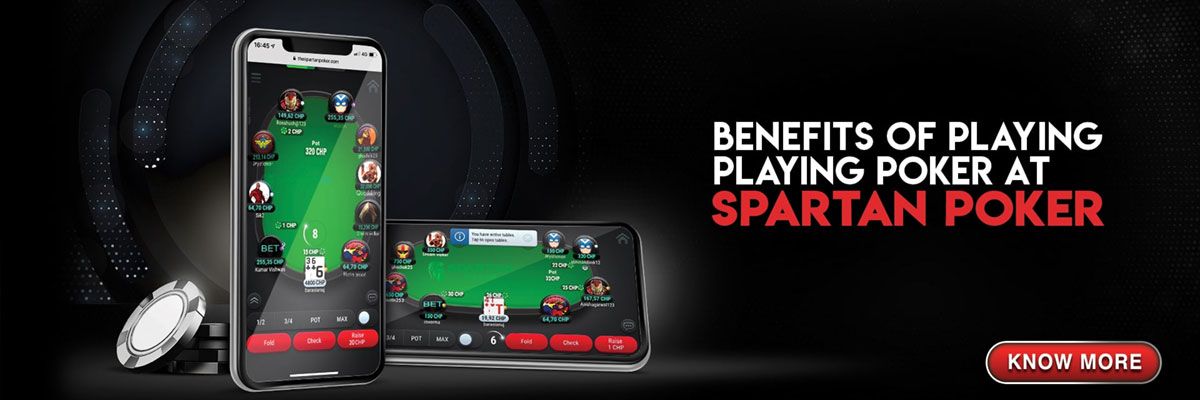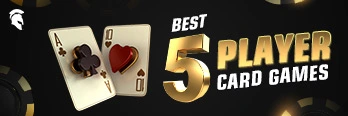How to Win Frequently at Poker?
If you’ve ever sat on your couch and wished for a way to make boat loads of cash without moving, then you’ve probably been called foolish. You’ve been told that if you want to become wealthy, you’ll have to get up and go outside, work really hard, and then maybe, someday, in the distant future, you will have money. But don’t listen to these naysayers. I’m of the same school of thought as you. And unlike the people around you who are giving you such practical but boring advice, I want to introduce you to a concept that will make all your dreams, a reality. All you have to do is win frequently at poker.
Yes! Poker, a card game, is going to change your life. You might think of poker as either something frivolous that is played at dinner parties, or as a game so complicated that there are thousands of books written on it, in order to understand it. But poker fits into neither of these extreme stereotypes. If played correctly, and with a good head on your shoulders, it’s really a very accessible game. Earlier you would have to find a card room to enjoy a game of poker, but these days, all you need is a computer or a smartphone, and you can play poker online.
You’ve come home from work, and you’re tired? It’s okay; just play some poker on your laptop. You’re a parent who has only a few minutes to spare before bed? No problem, play some poker on your phone. Basically, these days, anyone can play poker. And while anyone can play the game, not everyone can win enough for the game to be profitable. If you’re worried that you might be one of these people, then please don’t be. This is where I come in. I’ve got all the tips and tricks you need to win more poker games. Let’s get started, shall we?
1) Scheduling:
Look around you, and you’ll see all these successful people. They run companies or manage organizations, even plan huge events. Maybe you’re one of them. If you are, then you’ll know that the secret to succeeding at any endeavour is planning.
If this tip sounds surprisingly simple, then we’re on the right track. Anything that is easier to do, can become a habit that will help you win the game. But, if you’re wondering how one can plan and schedule something like poker, let me explain.
Playing poker at random times can be fun, and makes sense if you have no time, at all. And this works for recreational players, but not if you want to win some big bucks. On the other hand, if you have even a few minutes to spare at the same time, then you can use that time slot to play some poker. You can use the calendar app on your phone or even a to-do list to help plan out your poker hours. If you’re really serious, you can even create an excel spreadsheet and keep track of the time you spend playing poker.
The purpose of this kind of schedule is to build a pattern. You’ll be playing more frequently this way, which is excellent because good players practice, a lot. But you’ll also be training your brain to be more alert and focused, especially in those hours you schedule to play poker.
Now scheduling time alone is not enough. You’ll have to consider some basic questions before you start playing. Think of these questions like the basic queries you ask before buying a car or an expensive gadget. You always need to have all the information at your fingertips before you make such a purchase, right? The same goes for poker, as well. The questions that need to be at the forefront of your mind and at the top of your poker schedule are as follows:
- The amount of money you want to make playing poker,
- The number of hands you need to play to achieve your goal, and
- The number of hours you need to play after looking at your win rate.
All of these questions will help you create a solid plan, and also determine the hours you need to play poker. You don’t want to be playing less or more than what you need to be playing. You’ll make little money in case of the former, and end up losing money in the latter situation.
You should also factor in some time for studying in your schedule. Sounds boring, right? Actually, it’s not. If you want to win more games and make more money, then you need to consume poker related content. You can increase and decrease your study time depending on the amount of experience you have, and then devote the rest of your poker time towards playing. And honestly, this kind of studying isn’t what you did in school. This is fun; trust me.
While making your schedule, remember not to overdo it, and leave time for other activities. You don’t want to burn out.
So whip out those diaries, and start planning!
2) Bankroll Management:
Another tip that sounds extremely tedious, but actually isn’t. Give me some time, and it will all make sense.
Let’s take a second and focus on one of the most important and fundamental aspects of poker; money (I told you it wasn’t boring). Let’s think of poker as a company. If you were running a successful company, you would be relying on so many factors to improve your business, right? You would consider the service you’re providing, the competitors in the market, and even the manufacturing and marketing aspects. But the only way to tell if you were running a profitable company would be to look at your bank. Your company would be running profits only if you were making more money than you were spending.
Similarly, in a game of poker, you are a successful player, only if your bankroll is managed. You can have all the other skills that are required from a poker player, but if you can’t wrap your head around bankroll management, you won’t be playing poker for very long. So, what exactly is bankroll management?
Bankroll management is being aware of the bankroll you have and abstaining from playing in games that have betting sizes larger than your bankroll. In poker, you have to place bets in order to remain in the game, and you have to do this at every round. So if the buy-in for any game is a high amount for you, then you won’t be able to afford to bet in every round. You’ll just end up losing money because there’s no chance you’ll be winning that game.
You have to think of your buy-in and the bets you place at a table as investments. Just like you would not invest money in shares that don’t look like they would profit you, you should not be playing in games where the buy-in and the bets would be too high for you. You would be investing your money and time in a game that would yield no result.
This is extremely important and practical advice if you want to make money from poker. Don’t get excited and start playing in big games because you think it’ll get you big rewards. You need to be practical and keep a watch on your own pocket, before you go spending any money. This kind of financial thinking will keep you playing poker for long, and in the end, will be a very sustainable lifestyle.
Basically, keep your eye on your bankroll and your head on your shoulders.
3) Mindset:
The first two tips were important and practical and all things good. And yet, many players who inculcate these two habits, and very well, never seem to make it far in poker.
It’s a good thing to have some control over your pocket and your plans, but what if that squishy organ sitting inside your skull cannot be controlled? The best laid plans and strategies cannot help you if your mind is spinning out of control. It might seem odd, but this is one of the most fundamental tenets of poker. You get to hear the words ‘poker face’ thrown around for no reason. It’s a game that values traits like, calm and collected. But this is easier said than done.
Poker is a game where players have to deal with immense amounts of pressure and have to take high stakes risks with their own money. Plus, they’re surrounded by equally skilful players, all of whom are after the same thing; winning that pot. It’s bound to be a bit of stressful situation. But it’s how you behave when placed in such circumstances, which determines what kind of player you’ll be.
Several players tend to do this thing called ‘monkey tilting’. ‘Tilting’ is a word commonly used by poker players to describe an extremely emotional player. Such a player is so deeply affected by the goings-on of the game, that he or she is reacting in an emotional way, either expressing anger or even fear. They are violating the cardinal rule of poker and revealing their hand by behaving in an obvious manner.
So, you see, it’s important to maintain your cool while at a poker table. If you give away your game because of your emotional state and wound up mindset, you will definitely lose the game, and with it, the money you invested. This is not just the case with poker, but with several other sports. In fact, in today’s time, there is so much conversation about how mental health affects even everyday activities.
But you can remedy such tendencies, by looking at all the material on improving your mindset. You can refer to books, blogs, and even videos that help you remain calm under pressure and guide you to make rational decisions even when you’re being overwhelmed emotionally.
Take a deep breath, and get started on improving your mindset. It’ll help your game, but it’ll also improve your life.
4) Tracking and Analysis:
Another tedious looking title, but if you want to be a profitable poker player, then you have to follow through.
Going back to our analogy of poker as a company, we can safely say that all successful companies keep track of their business. They need to ascertain which products are working and the services that are failing, etc. Similarly, as a poker player, you need to keep a check on the strategies that lead you to wins and even the number of games you’re playing and how many of those you end up winning. You might even need to look at your hands and understand which ones help your game and which ones aren’t for you.
All of this work is basically tracking your game and moves and then analyzing them. Now, if you’re playing poker online, most of the analysis you need, will be done for you and displayed. For example, your win rate will be calculated for you, and you won’t need to do any of the work. But if you aren’t, you can use tracking software to help you run some statistics. This kind of software will analyze your game and point out your strengths and weaknesses.
But if you don’t want to use the software, and if you play manually, then you can track your game, yourself. You just need to keep some estimates on a piece of paper, and you’re set to go. Note down the number of games you’ve played, the number of hands you win, and any other details you need to calculate certain figures such as your win rate or your equity. All of the formulae are available online, and none of it is mind-breaking math, so you’ll be able to handle it on your own.
Essentially, tracking and analyzing your game will point out the areas you need to improve in and also showcase your strong points so that you can exploit those in further games.
It’s a little bit like playing detective, so it can’t be that bad, right?
We’ve looked at all the ways you can improve your game and become a frequent winner at the poker tables. If you keep each point mentioned above in your mind, and inculcate these habits in your life, they are bound to translate on the table. Your moves and mind will sharpen, and your game will be better than it ever was. Putting all the tips together is a good strategy, but you also need to practice. So, come join us at Spartan, and play some online poker games to test out your newly acquired knowledge!

















